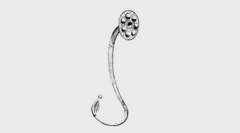Keywords
Enterprise Culture, entrepreneurship, fairytales
Abstract
We believe that these two very different fairytales are a fitting introduction to the first part of this two part exploration by the authors into Danish and Danish-American Enterprise Culture. This is because they capture the spirit of their respective nations as it stood in 19th Century Denmark and America. The idea for the article flourished from an email conversation, between the authors Helle Neergaard and Robert Smith in late December 2005. The basis of the conversation was that with the year 2005 being the 200th anniversary of the birth of Denmark's favourite son Hans Christian Andersen it would be fitting to commemorate his works in some way. This article grew out of this conversation. As such this article marks the entrepreneurial achievements of Hans Christian Anderson as a talented writer and indeed literary entrepreneur. It also marks the achievements of another famous writer Horatio Alger Jr. Both writers as boys were products of their cultures. In keeping with the title of the article both boys did indeed grow up to write literature which we believe shaped the entrepreneurial orientation of their respective nations. Hans Christian Andersen wrote darkly brooding fairytales which captured the imagination of the world; and Horatio Alger wrote his corpus of fictional novels, now known as "Horatio Alger Myths" in which the poor-boy-makes-good. These stories are credited with inspiring generations of Americans to follow their entrepreneurial dreams. We argue that this body of Americanizedfolklore is in its own right closely related to the genre of fairytale. We further argue that the fairytales of Hans Christian Andersen can be read as proto-entrepreneurial tales. Indeed, consideration of folklore and fairytale as proto-entrepreneurial narrative is not a new idea. For example Folklorists such as J Zipes1 have suggested that the fairytales of the Brothers Grimm were prototypical forms of the German Capitalist Dream and indeed a form of enterprise discourse. To date we are not aware of anyone who has suggested that the works of Hans Christian Andersen were a prototype for the spirit of Danish enterprise. We find this significant.
Recommended Citation
Smith, Robert and Neergaard, Helle
(2007)
"Reading the Fairytales of Hans Christian Andersen and the Novels of Horatio Alger as Proto-Entrepreneurial Narrative or A true story of two boys who grew up to write stories which shaped the entrepreneurial attitude of their nations!,"
The Bridge: Vol. 30:
No.
2, Article 7.
Available at:
https://scholarsarchive.byu.edu/thebridge/vol30/iss2/7
Included in
European History Commons, European Languages and Societies Commons, Regional Sociology Commons


